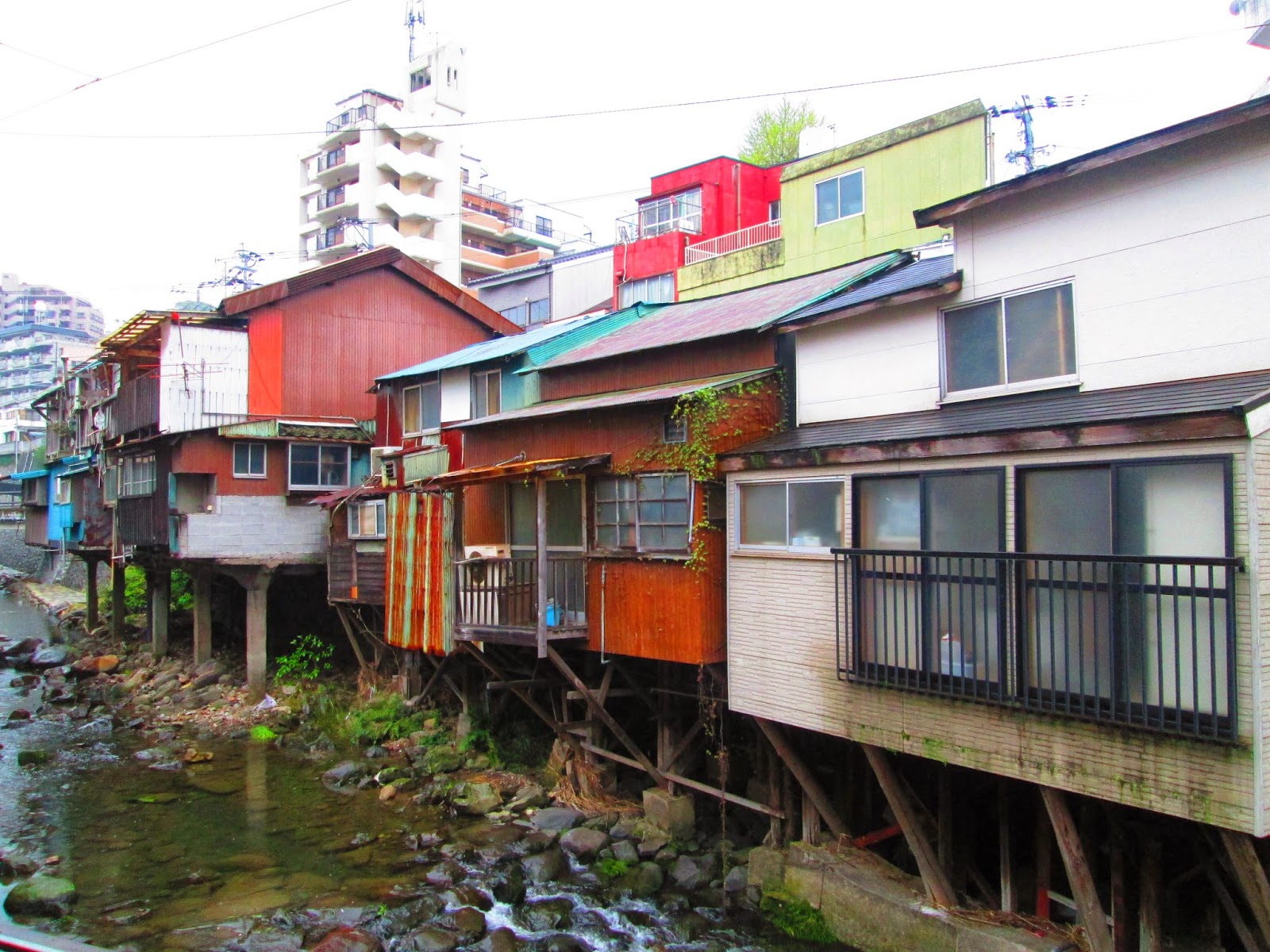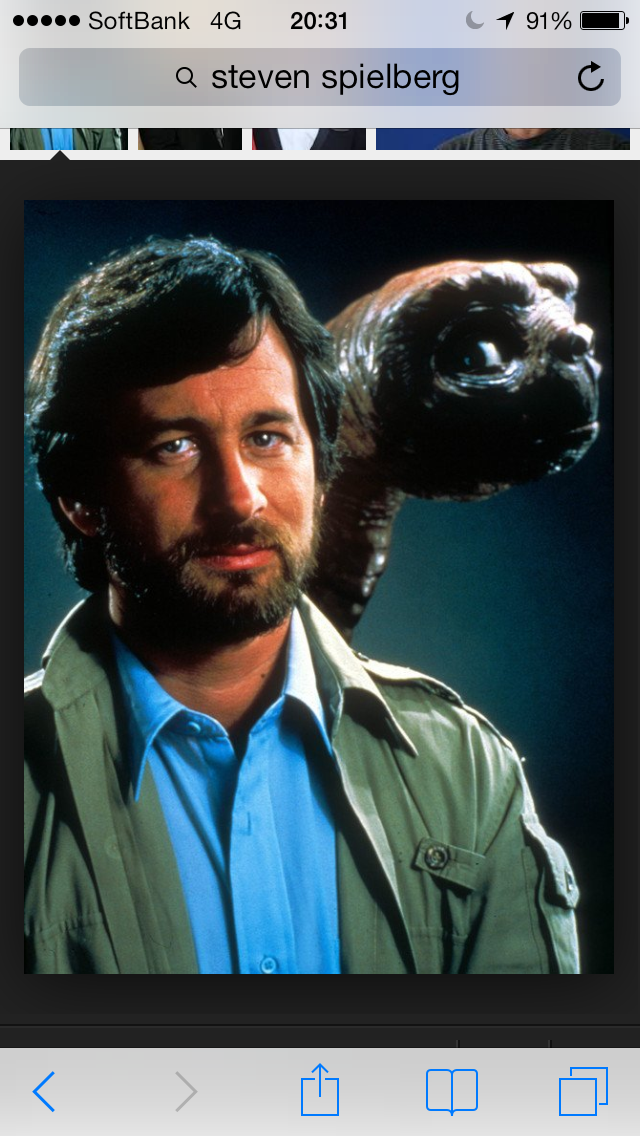As such, I thought I’d gather together all the bits of advice and things I’ve learned that don’t quite fit in on the forms – things that any other JET or ALT might find helpful (like this site - or this one), and that I wish I’d known. The points about school will probably be most useful for people like me, who previously had no teaching and little public speaking experience.
 |
| Don't be afraid to make a fool/ crazed Scottish loon of yourself for the English club poster (as one kind student put it, "Now we know Sophie sensei is not vain".) |
SCHOOL
Keep a notebook from day one recording what you do with each class, including games, and what worked or didn’t work. Make notes on students to help you remember their names and abilities, etc. I would have been completely lost without this. Add nice things and surprises that happen to read if Stage 2 hits!
Don’t underestimate an element of theatricality in the classroom. It ain’t what you say, it's the way that you say it. It’s up to you to enthuse and engage the students in what is normally a repetitive subject for them. The same activity presented in different ways can provoke very different reactions, so think about how you’ll build their interest in the task: capture their attention by asking them to turn around, close their eyes, call out suggestions, vote on a topic, etc.
That said - remember you’re not there to be an entertainer or a comedian. If you’re feeling the pressure to perform in class, turn it around – it should be the kids who feel challenged (in a good way), not you. Focus more on what you want the students to be able to do than how a teacher is meant to act or speak.
Accept that you’ll have good days and bad days at school. Don’t give up on the troublesome students – a perk of many ALTs' job is we don't have to worry about discipline. Continue trying to talk to them out of class, and meet them halfway: some of my ‘rowdy’ boys would often write risqué things playing shiritori etc – but I’d not bat an eye and just correct their grammar! For every kid who shouts “I don’t like English!” in your ear, there’s one who’ll bring you souvenirs from holidays and email you after graduation.
Make it clear what you expect of students at the start of the semester. This year I told all my new first year students that I didn’t mind at all if they made mistakes: in fact it was a good thing in communication classes. But I did expect them to be vocal and active in class and to tell me if they didn’t understand.
Don’t start a reward system, like passport stamps, unless you intend to follow it through. Perhaps wait until the second semester or new school year to implement it, once you’ve settled into your role and know what’s what. It will only be effective if you really commit to it and make it an integral part of classes.
Don't be afraid to repeat questions. I didn’t want to check which was my pigeon hole a third time and ended up throwing out all my Vice Principal’s memos for a few weeks, thinking they were mine…
With lessons, simple is often best. Some of the lessons I thought would be a bit boring turned out to be the most popular. Likewise, always have a back up or a time filler prepared, but too many activities in one lesson will feel rushed and will just stress you out.
 |
| Be sure to make full use of Line's admirable range of stickers |
DAILY LIFE
100 yen stores like Daiso are a godsend. From false eyelash glue to bike lights, waterproof trousers to champagne saucers, you can find just about anything there.
Keep a towel and a fan on your person at all times in summer!
Don't leave your bike unlocked no matter how trustworthy your town – the police or the mall attendants will lock it and you’ll have to locate them and retrieve the key.
Make your peace with Japanese toilets early on. I know one ALT who managed to avoid using the school toilet for several months (going home at lunch instead), only to find out later that there was actually a Western toilet right there too.
When studying Japanese, don’t bother making physical flashcards, unless it particularly helps you – websites like this are free and easy.
Freeze your food garbage in a large plastic bag until the collection morning for non-burnable rubbish, especially in summer.
Be careful when toasting – raising your glass higher than the other one clinking indicates you think you’re of higher status.
Remember that things we take utterly for granted might be different here. I was non-plussed to see my colleagues smiling as they told me about another teacher's family troubles... until I did some digging and found that in Japan, smiling can indicate sadness, embarrassment, anger and more. After the initial honeymoon period, keep your mind wide open to these cultural variations.
 |
| Be mindful of Japanese subtlety |
GENERAL
Make a list of goals and priorities before you come and refer to it often. It will help you on difficult days at school and help you keep a sense of purpose if you feel disconnected.
Personally, I found moving to Japan was a chance to realise what had been habit and social expectation, and what is what you actually want. Transplanting yourself into a completely different life is a huge opportunity in this way.
Try your best not to compare yourself to other JETs or ALTs in terms of teaching style, work load, Japanese ability – anything. It’s inevitable that you’ll come across Jets who are more or less experienced in or committed to teaching. JET is a unique situation in that most of your new friends have an extremely similar job and lifestyle to you, but try to focus on what is best for you.
Say yes a lot and try to do new things that make you a bit nervous.
I’ve never relied on or supported my friends more than this year. Unless your Japanese is great or you’re super independent, friends will be the ones helping you with hospital appointments, giving you rides to weekend events, and helping you with the little things like bills and train tickets that would be easy back home. So be prepared to rely on them and to help them out in turn.
Consider staying more than a year. For various reasons it was always going to be one year only for me. But it was only when a new school year started in April that I felt really happy and capable in the job, and realised how much of Japan I still have to see. So keep your options open...
Someone told me to ‘give everything of yourself and expect nothing in return’, and I resolved to try it as best as I could. In the end, what I had to give was more than returned to me in kindness, patience and friendship by the people I met here. And I found that, in times when I was getting a little jaded with teaching, focusing on what I could contribute rather than how I could benefit made the work more effective and more rewarding.




















































































